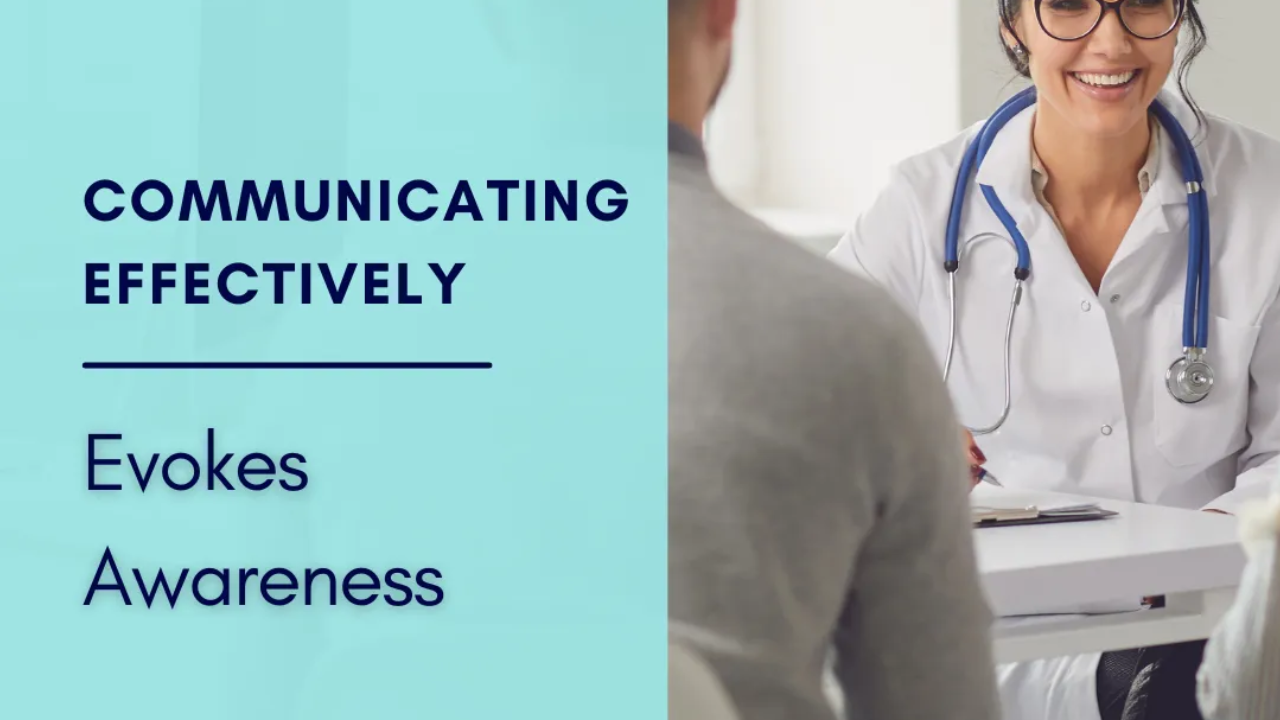Evokes Awareness - Communicating Effectively
Mar 28, 2025
The International Coaching Federation (ICF) Core Competencies outline skills and approaches used by professional coaches. These principles are explicitly stated in the context of coaching and can be used with colleagues, patients, and ourselves in the hospital and beyond. In this blog series, we look at how the ICF Core Competencies apply to physicians in the areas of personal growth, peer support, and patient care.
The seventh Core Competency area we will address in this blog series is critically important on the path to success: Evokes Awareness
This Core Competency is defined by eleven skills or approaches. In this blog, we address skills 6 - 11.
6. Notices what is working to enhance client progress
Certain techniques will work with certain clients and others will fall flat. As you move forward in your coaching partnership, be mindful of what works for your client. If a particular approach isn’t yielding results, remain flexible and adjust your methods. What works for one client may not work for another.
Ask yourself: How can I support this client in a way that best serves their needs?
7. Adjusts the coaching approach in response to the client’s needs
Every client is unique. Effective coaching requires meeting clients where they are—not where we think they are or assume they should be. Understanding your clients and their needs is step 1.
The way we coach our clients matters, too. Step 2 is adjusting the coaching style to serve the client. Some may need a softer approach, while others may benefit from a challenge. The key is to recognize and adapt to their unique needs to facilitate meaningful progress.
8. Helps the client identify factors that influence current and future patterns of behavior, thinking or emotion
Awareness of the present and future is key. Countless factors influence clients, including but not limited to their environment, interpersonal relationships, and deeply ingrained thought patterns from years of experiences. Our role as coaches isn't to diagnose the past but to help clients recognize the factors shaping their current and future success. Understanding their own values, beliefs, and behaviors enables them to take ownership of their growth.
9. Invites the client to generate ideas about how they can move forward and what they are willing or able to do
The next steps should come from the client—not the coach. If the coach dictates the path, it becomes teaching or mentoring rather than coaching. Only the client truly knows what they are ready and willing to do. However, some clients may hold limiting beliefs about their abilities. As coaches, our role is to challenge these beliefs with reason and grace, supporting them in discovering new possibilities.
10. Supports the client in reframing perspectives
We all see the world through our own lens, shaped by our experiences, beliefs, and emotions. But what happens when we step outside that perspective? Is there a single “right” way to view a situation?
Every story has multiple sides. Sometimes, the protagonist and the antagonist are simply different perspectives of the same experience. As coaches, we help clients explore alternative narratives, gain fresh insights, and shift their perspective in ways that foster growth and reveal new opportunities.
11. Shares observations, insights and feelings, without attachment, that have the potential to create new learning for the client
The phrases “without attachment” and “create new learning” stand out in this competency. The challenge lies in balancing sharing insights without imposing an agenda. If we offer observations with a predetermined outcome in mind, we are planting a seed with expectation rather than facilitating discovery.
Instead, if we share observations, insights, and feelings as examples without attachment, we allow the client to draw their own conclusions and decipher meaning for themselves. In doing so, we create opportunities for new learning and potentially impactful connections that can be applied moving forward in similar situations.
By applying these principles to evoke awareness in our clients, we deepen self-awareness, overcome barriers, and take meaningful steps toward goals. Evoking awareness is not about providing insight—it’s about empowering clients to recognize their potential and make informed, intentional, and forward-focused decisions.
CONNECT WITH US!
Subscribe for the latest coaching news, resources, and Physician Coach Training updates.
This is a confidential list. We will never share your information, for any reason.


